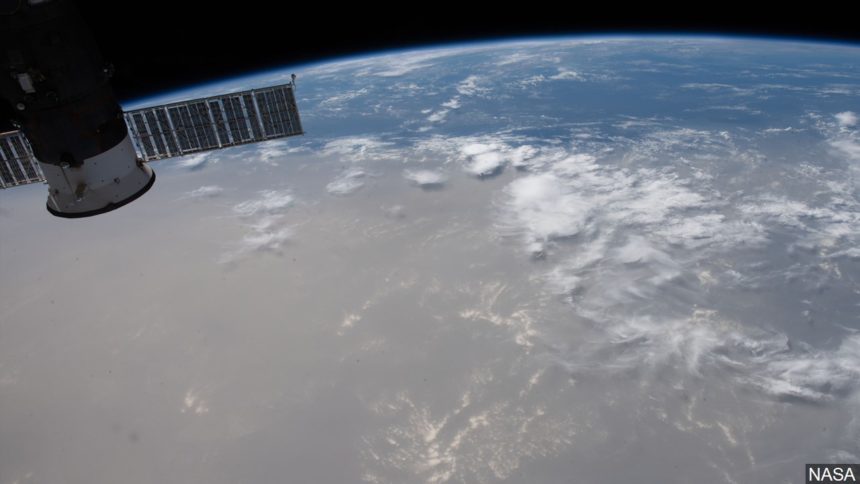El Paso manages to avoid worst from massive Saharan dust cloud

EL PASO, Texas -- While a massive Saharan dust storm continues, it seems El Paso has dodged most of the dust.
“This year is literally the biggest Saharan dust storm on record by everything the research community is looking at,” UTEP professor of geological sciences Dr. Thomas Gill said with enthusiasm.
ABC-7 Chief Meterologist ‘Doppler’ Dave Speelman is tracking the monstrosity of the dust storm as well.
“This first rides the jest streams, so it travels like five thousand miles,” he said.
Gill echoing what Speelman said by saying these streams are what carry the dust from the Sahara desert in Africa, across the Atlantic, into the Caribbean and then into the United States. Gill told ABC-7 that this is not unusual, however, what is unusual is the size and magnitude of this storm.
“This is a significant one we are talking about, I have heard reports of 700, 000 large dump trucks of dirt being lofted in the air and being carried off to the west,” Speelman said.
Gill added, “There has never been an unbroken, continuous cloud without any breaks in it all the way from Africa into the Gulf."
When asked what caused this storm? “I don’t think we have exactly figured out the answers,” Gill told ABC-7. “It shows no sign of stopping any time soon, so there are more pulses or waves of dust coming off of the Atlantic.”
Gill said he has seen low but discernible levels of the wave of dust in Midland, Odessa, Lubbock but he doesn’t appear to have made it’s way past the Permian Basin.
“We are not going to be looking at much of anything it’ll be staying out to the east of us,” Speelman said. “It’ll disperse and then then travel more toward to the north, as it heads to the Midwest. We are too far west to see anything significant out of this at all.”
Although, El Paso will be missing the milky skies and spectacular sunsets and sunrises from the dust, Gill said we are fortunate.
“Dust of any kind will increase the inflammation of the respiratory track and really make asthma or lung disease worse,” he explained.
Those with respiratory issues such as allergies, asthma or any other respiratory disease can face difficulty with an influx of dust in the air according to Gill.